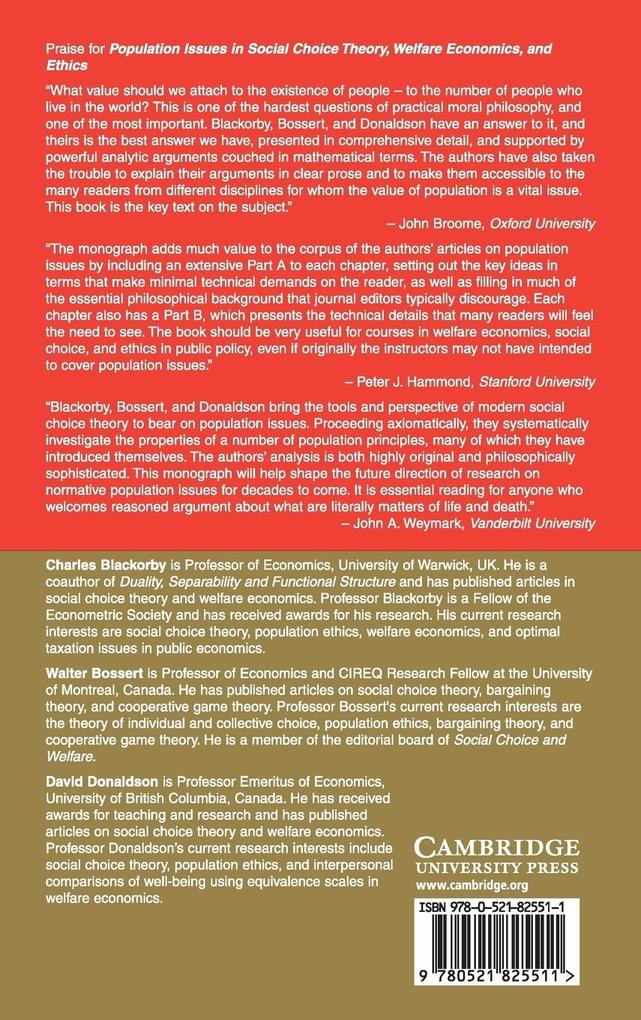
Zustellung: Sa, 05.07. - Mi, 09.07.
Versand in 7 Tagen
VersandkostenfreiThis book presents an exploration of the idea of the common or social good, extended so that alternatives with different populations can be ranked. Basing rankings on the well-being, broadly conceived, of those who are alive (or ever lived), the axiomatic method is employed. Topics investigated include the measurement of individual well-being, social attitudes toward inequality of well-being, the main classes of population principles, principles that provide incomplete rankings or rank uncertain alternatives, best choices from feasible sets, and applications.
Inhaltsverzeichnis
1. Introduction; 2. The measurement of individual well-being; 3. Welfarist social evaluation; 4. Fixed-population principles; 5. Population principles; 6. Characterizations and possibilities; 7. Uncertainty and incommensurabilities; 8. Independence and the existence of the dead; 9. Temporal consistency; 10. Choice problems and rationalizability; 11. Applications.
Produktdetails
Erscheinungsdatum
29. Mai 2015
Sprache
englisch
Seitenanzahl
378
Autor/Autorin
Charles Blackorby, Walter Bossert, David J. Donaldson
Verlag/Hersteller
Produktart
gebunden
Gewicht
697 g
Größe (L/B/H)
235/157/25 mm
ISBN
9780521825511
Entdecken Sie mehr
Bewertungen
0 Bewertungen
Es wurden noch keine Bewertungen abgegeben. Schreiben Sie die erste Bewertung zu "Population Issues in Social Choice Theory, Welfare Economics, and Ethics" und helfen Sie damit anderen bei der Kaufentscheidung.








